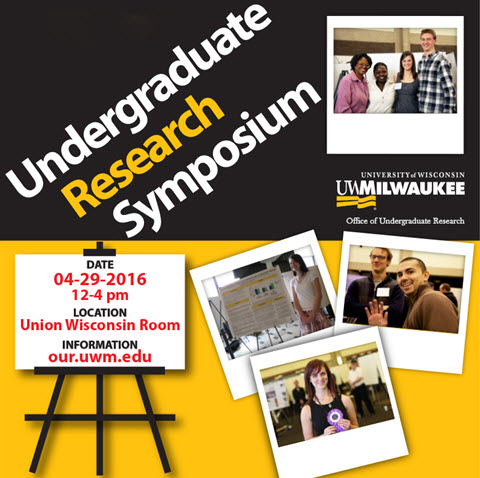Cross-Cultural Perspectives on Parent-Infant Bed-Sharing
Mentor 1
W. Hobart Davies
Location
Union Wisconsin Room
Start Date
29-4-2016 1:30 PM
End Date
29-4-2016 3:30 PM
Description
The purpose of this study is to determine if a difference in Hispanic origin affects the way parents decide where the safest sleeping location is for their baby to sleep. In recent decades, the healthcare field has failed to create a multicultural campaign that embodies the beliefs of family’s ethnic identity. Acculturation factors also significantly influence the individual’s unique identity. The sample includes parents from all Hispanic origins, but will analyze the differences between Spanish-speaking Caribbean cultures (Cuba, Puerto Rico, and Dominican Republic) and Mexican culture through a brief online survey available in both English and Spanish. The survey includes demographics, the Brief Infant Sleep Questionnaire (BISQ), the Short Acculturation Scale for Hispanics (SASH), and the parent Flourishing Scale, which will be used to determine how acculturation affects a parent’s cultural identity and the decision of where his or her baby sleeps. Statistical analysis will include three separate categories comprised of the data collected from the different measures. They will address three hypotheses. Hypothesis 1: a phi test will analyze the categorical variable between the amount of Hispanic parents that bed-share compared to the amount of white parents that bed-share. Hypothesis 2: will also use a phi test to determine the prevalence of bed-sharing in families of Mexican origin to families of Spanish-speaking Caribbean origin. Lastly, a t-test will analyze Hypothesis 3: to determine how acculturation level influences a parent of Hispanic origin’s decision to bed-share in comparison to white parents.
Cross-Cultural Perspectives on Parent-Infant Bed-Sharing
Union Wisconsin Room
The purpose of this study is to determine if a difference in Hispanic origin affects the way parents decide where the safest sleeping location is for their baby to sleep. In recent decades, the healthcare field has failed to create a multicultural campaign that embodies the beliefs of family’s ethnic identity. Acculturation factors also significantly influence the individual’s unique identity. The sample includes parents from all Hispanic origins, but will analyze the differences between Spanish-speaking Caribbean cultures (Cuba, Puerto Rico, and Dominican Republic) and Mexican culture through a brief online survey available in both English and Spanish. The survey includes demographics, the Brief Infant Sleep Questionnaire (BISQ), the Short Acculturation Scale for Hispanics (SASH), and the parent Flourishing Scale, which will be used to determine how acculturation affects a parent’s cultural identity and the decision of where his or her baby sleeps. Statistical analysis will include three separate categories comprised of the data collected from the different measures. They will address three hypotheses. Hypothesis 1: a phi test will analyze the categorical variable between the amount of Hispanic parents that bed-share compared to the amount of white parents that bed-share. Hypothesis 2: will also use a phi test to determine the prevalence of bed-sharing in families of Mexican origin to families of Spanish-speaking Caribbean origin. Lastly, a t-test will analyze Hypothesis 3: to determine how acculturation level influences a parent of Hispanic origin’s decision to bed-share in comparison to white parents.


